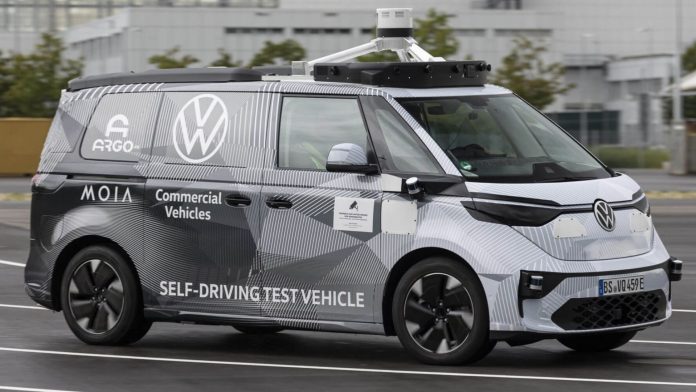German auto giant Volkswagen said it would start testing its self-driving electric cars in Austin, Texas, later this month.
Although the carmaker already has two autonomous vans in the U.S. and is scheduled to begin testing before the end of July, Volkswagen aims to deploy an additional ten ID Buzz electric vans equipped with Mobileye-developed autonomous driving systems by the end of 2023.
VW has been working with supplier Mobileye in a strategic move after placing an expensive wager on Ford’s now-closed self-driving car unit, Argo.
According to Katrin Lohmann, the executive overseeing Volkswagen’s self-driving initiatives in the U.S., “We selected Austin as the first U.S. hub as the city has a track record for embracing innovation and offers a conducive climate for the testing of autonomous vehicles.” Lohmann continues, “Over the next three years, the business plans to double its Austin fleet and add testing operations in at least four additional American cities.”
The move is the most recent in a slew of actions the car giant has taken in recent months to restructure its self-driving strategy, including closer cooperation with Mobileye and additional investments in MOIA, its ride-sharing service based in Europe.
The corporation is not considering a ride-sharing service currently in the U.S. despite working toward a robotaxi service in Europe. Instead, it intends to provide fleet management tools and autonomous ID Buzz vans to other companies that offer delivery and ride-sharing services.
Volkswagen said it could use Mobileye’s supply chain and mapping data to scale up production and save expenses.
On the other hand, VW has joined G.M.’s Cruise and Alphabet’s Waymo in testing self-driving cars in Austin, Texas, which is recognized for having the laxest rules in the U.S. on the subject. Furthermore, companies have invested billions of dollars in developing technology to improve traffic safety. However, companies like Tesla, Cruise, Waymo, and others still need to meet their deadlines for releasing self-driving cars, and their vehicles struggle to handle unusual and unplanned driving circumstances.




